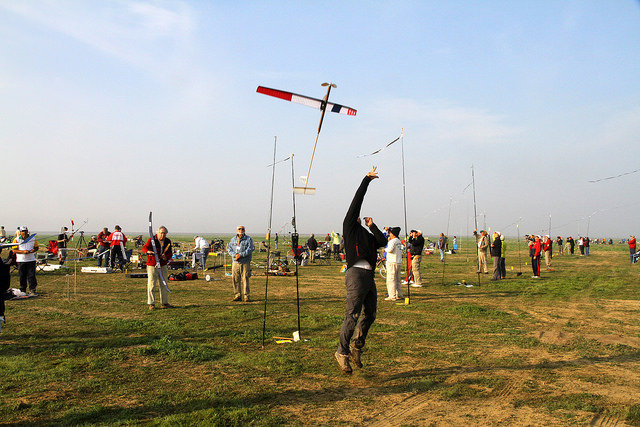SEN 1938
- Details
- Category: Archive 2014
- Hits: 2837
- Comment on CIAM Proposals
- F1C proposals
- Why do we need F1S
- Comments on US Team Selection
< text-align: start; text-transform: none; white-space: normal; word-spacing: 0px; background-color: #ffffff" id="yui_3_16_0_1_1418628406449_57102">
Comment on CIAM Proposals
Dear Sen,
It seems to me that the discussion about the CIAM ‘Wiki Leaks’ has taken off to levels I don’t understand. It so appears things are taken fully out of context as to ideas for F1A performance issues.
I would like to emphasise the word “ideas", they never made it to the proposal stage and the ideas would have never made it to a proposal without testing. The very same applies to other performance limiting ideas (not proposals!!). So all who believe the CIAM is cooking up proposals in a ‘top down’ approach without consulting the experts, who went out to actually test the ideas in practice, should think twice. Any progress starts with an idea. Before an idea is actually put as a proposal and implemented is a long way and we've barely started walking. A democratic voting process being part of this ‘walk'.
Best regards,
Allard
Editoial reply Allard - I suspect that the confusion is probably because you understand pretty well how the FFTSC work and communicate will with your fellow countrymen on these issues, this is not the case in all countries so when people hear some rumor, an idea before it comes a proposal , they fear the worst and the story gets amplified in every telling
< text-align: start; text-transform: none; white-space: normal; word-spacing: 0px; background-color: #ffffff" id="yui_3_16_0_1_1418628406449_57106">F1C proposals
From: Ron Young
What are the current proposals for F1C ?
Editorial Reply (subject to correction by someone who understands better than me). Try one of these .
1. The CIAM sometimes publishes on their web site after the November meeting minutes that includes the proposals going forward to the April meeting for vote. They do not appear to have done that yet
2. Ian Kaynes publishes in Free Flight News his comments on the November meeting that includes the proposals plus some very useful background information. In the December 2014 issue of FFn there were comments about some aspect of the FAI meeting, including an interesting IATA presentation about flying on commercial flight with LiPos in models. This issue did not include comments of the rules proposals but said they would be covered in a following issue
3. Ask Chuck Etherington or your USA TSE rep, who is probably Bill Booth assuming that you still live in CA who may have more information.
4. With respect to what Allard says above. There were a number of ideas floating around that probably got discussion but may not have reached official status.
< text-align: start; text-transform: none; white-space: normal; word-spacing: 0px; background-color: #ffffff">
Why do we need F1S
From: Ross Jahnke
I wonder too why an event needs to become FAI sanctioned to be flown in
other countries, P-30 being a good example for this point of view.
But F1J is not exactly and international version of 1/2A, as engine
displacement is different by 20%. And the technological changes were coming
to FF whether or not F1J existed. One might also point out that FAI status
has improved competition and development in the Coupe de Hiver event
greatly, and that it too was the subject of a FFQ special edition. The best
example of the benefit of FAI sanction is A/1, which was nearly dead before
it became F1H. In towline another phenomenon occurred as a result of F1A
and F1H. As interest grew and technology advanced, it created a renewed
interest in straight towing, which gave us the classic towline events.
So the FAI is neither always the perfect savior or the kiss of death,
though it has on occasion been both. The recent record of the FAI and our
existing electric event has just made some of us very nervous.
Ross
< text-align: start; text-transform: none; white-space: normal; word-spacing: 0px; background-color: #ffffff" id="yui_3_16_0_1_1418628406449_57110">Exemptions from time accumulation for USA Team Selection Program
Traditionally, previous team members and managers were exempt for requalifying in the era of qualifying/semifinals and finals. The semifinals disappeared when our numbers dropped and we switched to the 75 minute time accumulation, requiring flying at 4 to 5 contests over about 16 months. But the exemption of the previous team member and manager has remained.
Because our numbers have dwindled, the portion of those exempt from time accumulation is glaring. 36 flew at Boulder City (9 in A, 19 in B and 8 in C). 11 were exempt, although 4 did not fly at the finals (Bauer, Limberger, McKeever and Happersett). Roughly, 20% are exempt: 7/36 at the finals or 11/53 (20.4%) were 53 is the number of people who entered or were eligible.
From a financial point of view, dropping time accumulation would mean losing the entry fees of those who enter the program but do not fly at the finals. In this cycle had 18 no shows (4 in A, 6 in B and 6 in C) or $1620 with a $90 entry fee. To raise the same income, the final’s fee would increase to by about $50.
Some team members consider the exemption as a ‘privilege’ but seem to forget that we all help finance them. In my opinion, the only exemption should be for a world champion who is anyway entitled to defend his title; each cycle we should all start afresh.
The exemption issue is included in the team selection questioner sent out to program participants. They are due by Dec 19th, and are read carefully by the FFTSC.
Aram
.................................
Roger Morrell



